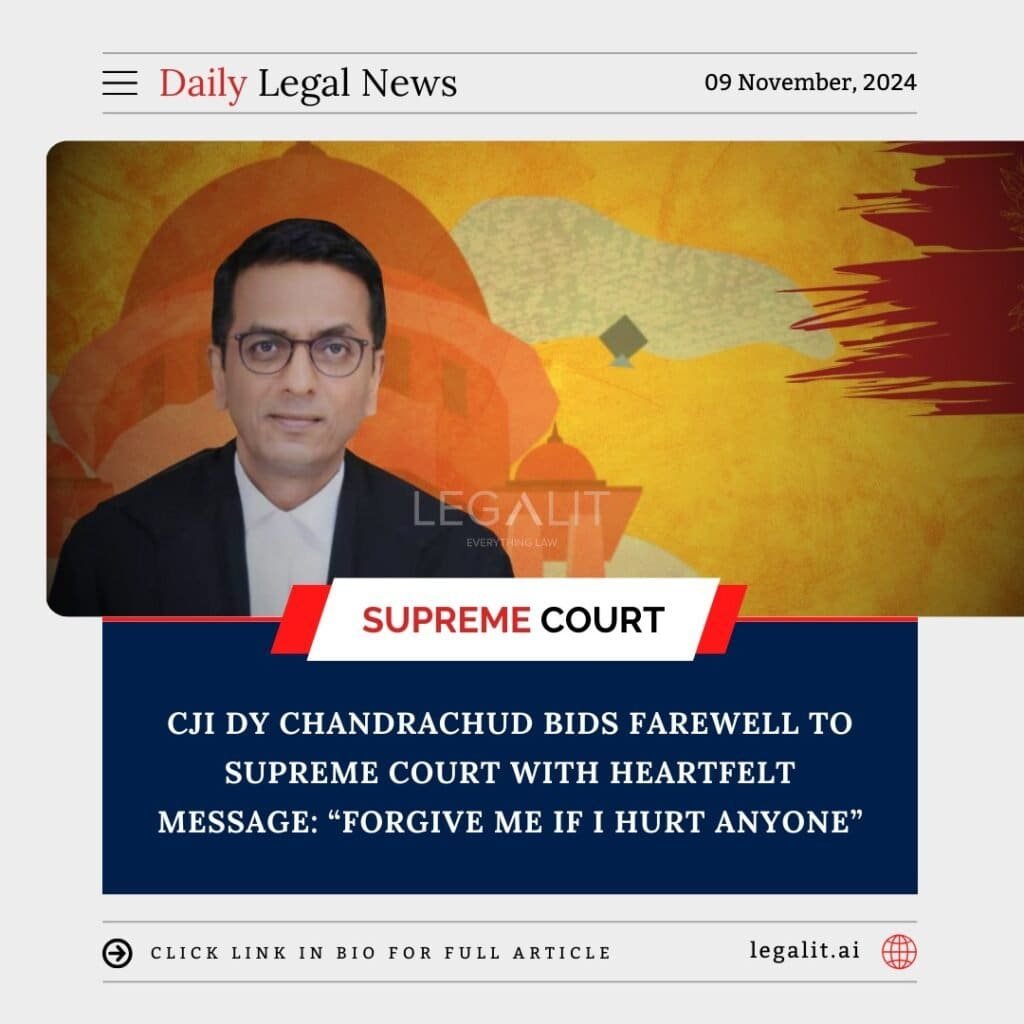
Chief Justice of India (CJI) DY Chandrachud recently bid an emotional farewell to the Supreme Court, expressing gratitude for his tenure and humility in his final address. In his parting words, he asked for forgiveness from anyone he may have hurt during his time in office, demonstrating a spirit of empathy and respect for his colleagues and the judiciary.
Background:
CJI DY Chandrachud, known for his progressive judgments and reforms, served as a prominent figure in the Indian judiciary. His tenure included landmark decisions on rights, equality, and social justice, making a lasting impact on Indian law. His farewell marks the end of an era characterized by significant judicial contributions aimed at upholding constitutional values and public interest. The CJI’s closing words reflect his dedication and respect for the responsibilities and challenges of his position.
Court’s Rationale:
In his farewell, CJI Chandrachud expressed his deep respect for the judiciary and the importance of fairness, integrity, and empathy in judicial roles. He acknowledged the weight of making difficult decisions that can have lasting impacts on society, indicating his awareness of the challenges involved in balancing justice with empathy. His request for forgiveness exemplifies his belief in maintaining humility and introspection as essential qualities for those in positions of authority.
Existing Measures:
Throughout his tenure, CJI Chandrachud advocated for judicial transparency, efficiency, and accessibility, implementing reforms to reduce case backlogs and enhance public trust in the judiciary. His efforts extended to promoting the use of technology in courts, increasing access to legal resources, and advancing human rights protections through progressive rulings.
Conclusion:
CJI DY Chandrachud’s farewell underscores his commitment to justice, fairness, and compassion. His parting words, asking forgiveness, highlight the humility and respect he maintained throughout his tenure, leaving a legacy that inspires future members of the judiciary. As he steps down, his contributions to Indian law and society will continue to influence the judiciary and reinforce the values of empathy and humility in leadership.
[ajax_laod_more]